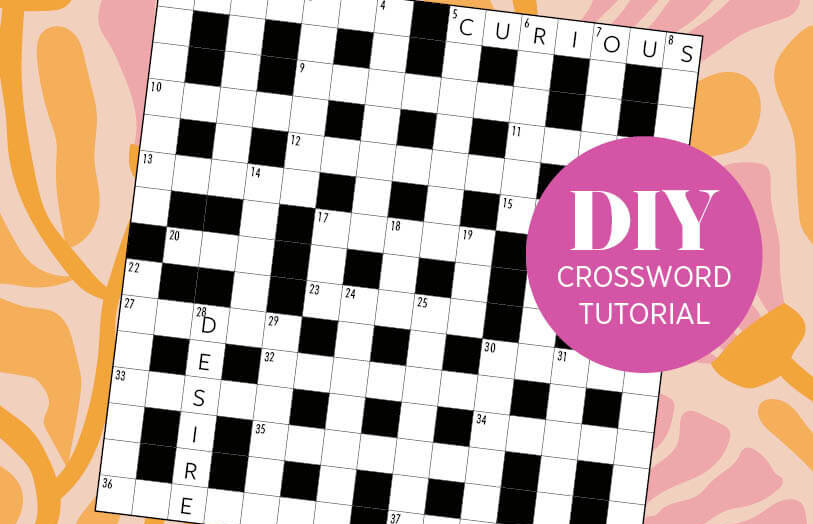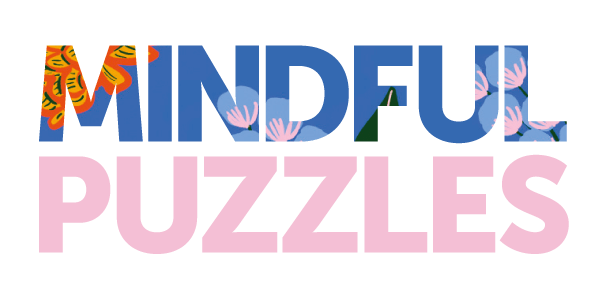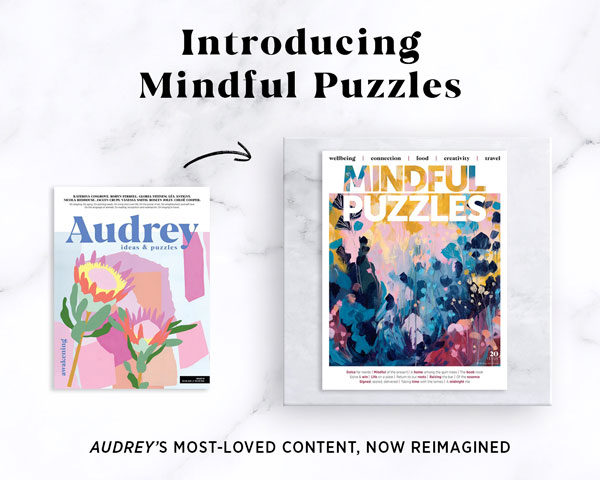
Awaken your inner cruciverbalist and compile your very own crossword.
Have you been curious about compiling your very own crossword but just had no idea where to begin? We’ve put together some helpful tips to get you started. Then, when you’re an expert, send us a copy of your crossword masterpiece on Facebook or Instagram @mindfulpuzzlesau.
1 You’ll need a pencil, eraser, and plenty of patience. Really, it’s a case of “If at first you don’t succeed, try, try and try again”. You’ll also need a dictionary and perhaps a small encyclopaedia. If you possess any crossword solving aids, you will find them doubly useful in compiling.
2 Think ahead! It’s no use putting in, say, a four-letter word like BUST if its second letter forms the final letter of another four-letter word. Your choice of four-letter words ending in U will be severely limited. If you settled instead for BEST, then you’ll have a four-letter word ending in E. Much better, right?
3 As you use words, keep an alphabetical list of them handy. There’s nothing so irritating as finishing the grid, then discovering, when you come to put clues to it, that you’ve used the same word twice.
4 Where possible, avoid using plurals. Of course, you’ll need them from time to time, but it’s a bit of a cop-out to use them too often.
5 Avoid prefixes like pre. Some prefixes, such as semi, stand on their own and these are legitimate.
6 Don’t use compound words unless your dictionary separates them with a hyphen. For example HAPPY HOLIDAY has no place in a straightforward crossword, though it’s perfectly okay to use it in a cryptic puzzle.
7 Avoid using words that your dictionary tells you are archaic. If people don’t use the words these days, there’s not much point expecting them to know them.
8 As a rule of thumb, if you’ve never heard of the word you propose to use, how can you expect others to know it? Mind you, it’s alright to put an unusual word into a space where all or most of its letters are covered by intersecting words.
9 When you get stuck in a corner and nothing seems to be working with the arrangement you have, you’ll need the courage to ruthlessly cut back. Just because you are fond of a word, it is pointless wasting too long if nothing seems to be working. There’s no rule of thumb about when to abandon an arrangement of words – you’ll know when the time is right to try something else.
10 Don’t be misled into starting your compiling in the top left corner. Take some time to look at the grid and find the problem areas. These are either parts of the grid where several consecutive letters interlock, or else areas containing long words where your choices will be more limited.
11 When you seem to be coming up against a brick wall, take a break. Often you’ll find that when you come back to the puzzle, a word will suddenly spring to mind and save you. Mind you, when your deadlines are occurring on an hourly basis, those breaks have to be kept unhappily short!
12 Now we come to clueing, every bit as important as the compiling job. What can be abundantly obvious to one person is quite meaningless to another, so if you get a chance, consult with a friend or a member of your family.
13 Now there are two approaches to clueing. One is the devious way (they’ll never unravel this one, tee-hee) and the other is the honest, straightforward way. There’s room for both, of course. But because life has enough pitfalls already, try and favour the latter approach and try to make your clues as unambiguous as possible. For example, for the word NEAR, you could put CLOSE as your clue. But remember, if solvers aren’t getting much help in the area of that word, they’re just as likely to answer it SHUT.
14 Keep your clues short. There’s a practical reason for this rather than an ethical one. There just isn’t room for rambling explanations. For example, it’s no good writing: “You open one when you enter a room” when you’re trying to clue DOOR.
15 Carefully check your clue numbers. You might be surprised how easy it is to overlook at least one during the first draft of your crossword.
16 Clue a noun with a noun and a verb with a verb. It’s very frustrating to find clues like LAUGHING when the answer is GIGGLE. Here’s a useful guide that nearly always works: Substitute the word you are clueing for the clue in a sentence and if it doesn’t sound right, it probably isn’t.
17 However confident you may be about your own knowledge, look up words in a dictionary or an encyclopaedia to make sure they agree with you. It just could be that you’ve been using a word wrongly all this time – no shame in that, we’ve all been there!
18 Most importantly, check your spelling! You’d be surprised how many words are incorrectly spelt time and again. Use your dictionary frequently.
Happy compiling!


